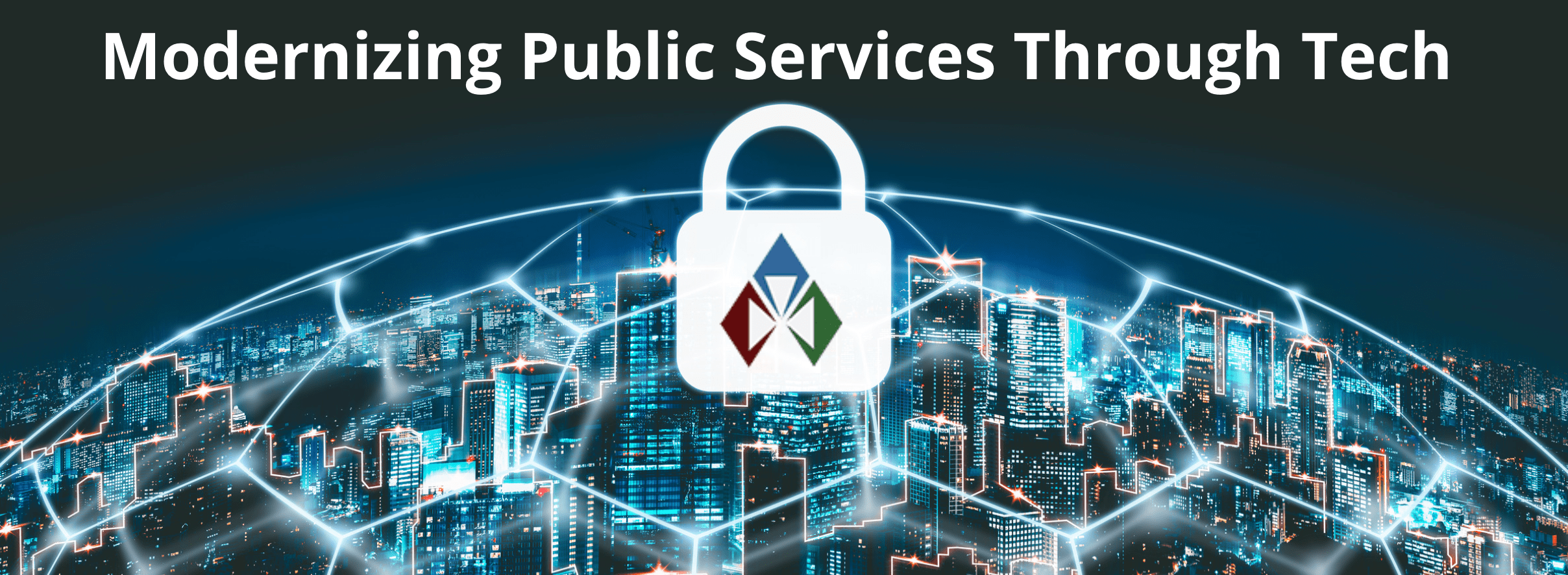Info Advantage Blog
Digital Transformation In Government: Modernizing Public Services Through Technology

In an era dominated by technological advancements, the need for governments to evolve and adapt to a digital landscape is more critical than ever. For instance, traditional paper-based systems of yesteryear are no match for the efficiency and accessibility that modern technology can offer. This is apparent in the growing reliance of citizens on technology and digital services. The onus is then on the government to adapt to its public's digital lifestyles.
Why Digital Transformation Is Necessary
The benefits of digital transformation in government are numerous and significant. It can:
- Enhance citizen engagement and satisfaction by providing easy and convenient access to services;
- Reduce costs and improve efficiency through automation;
- Promote transparency and accountability through data-driven decision-making; and
- Lead to a more agile and responsive government capable of adapting quickly to changing needs and demands.
By implementing modern digital solutions, governments can streamline processes and eliminate unnecessary bureaucratic hurdles, making it easier for citizens to access essential services such as healthcare, education, and social welfare. This level of efficiency not only saves time but also improves the overall experience for citizens, leading to increased trust and satisfaction in government services.
How Technology Is Transforming Public Services
The use of technology in public services has already begun to transform many areas within governments. For instance, the adoption of eGovernment platforms has allowed citizens to access a wide range of services from their computers or mobile devices, eliminating the need for physical visits to government offices. This has not only improved convenience for citizens but also reduced costs and increased efficiency for governments.
Additionally, the use of data analytics and artificial intelligence (AI) has enabled governments to make more informed decisions and improve service delivery. By analyzing large amounts of customer data, governments can uncover patterns and trends, predict future needs, and tailor services accordingly.
AI-powered chatbots and virtual assistants have also been introduced to provide 24/7 assistance to citizens, reducing the burden on government call centers and increasing accessibility for citizens.
|
Related reading: Supercharge Business Productivity With The Cloud |
Challenges in Implementing Digital Transformation
Despite its clear advantages, digital transformation in government is not without its challenges. One of the biggest barriers to implementation is the resistance to change typical in government agencies and employees. The transition from traditional paper-based systems to digital solutions can be daunting, requiring significant investment in training and infrastructure.
Privacy and security concerns are also major considerations when implementing new technologies. With sensitive citizen data being stored and transferred electronically, governments must ensure robust cybersecurity measures are in place to protect against potential cyberthreats. This also requires continuous monitoring, updates, and regular risk assessments.
Finally, the digital divide presents a challenge for governments seeking to implement digital transformation. Not all citizens have equal access to technology, and this can create barriers to accessing government services. Governments must consider alternative solutions for those with limited or no access to technology.
Overcoming the Challenges: Best Practices for Digital Transformation
To successfully implement digital transformation, governments can adopt the following best practices:
- Develop a clear digital strategy that outlines the goals and objectives of the transformation.
- Involve all stakeholders, including citizens and government employees, in the planning and implementation process to ensure buy-in and cooperation.
- Invest in training programs that provide government employees with the necessary skills to leverage new technologies effectively.
- Tackle privacy and security concerns by adopting robust cybersecurity measures and regularly auditing systems for vulnerabilities.
- Consider alternative solutions, such as physical kiosks or mobile vans, to bridge the digital divide and ensure accessibility for all citizens.
The Future of Digital Transformation in Government
The potential for digital transformation in government is endless. With the rapid development of new technologies such as blockchain and the Internet of Things, governments have even more tools at their disposal to improve service delivery and enhance citizen engagement. As citizens continue to demand more convenient and efficient services, governments must stay ahead of the curve by embracing digital transformation and continuously seeking innovative solutions. Only through modernization can governments truly meet the evolving needs of their citizens and remain relevant in a technology-driven world.
Info Advantage is dedicated to helping organizations achieve successful digital transformation through our comprehensive IT services and solutions. Contact us today to learn more about how we can support your digital journey.
Comments
Tag Cloud
Mobile? Grab this Article




